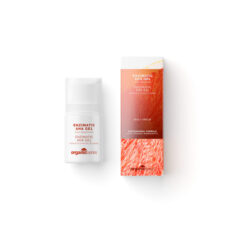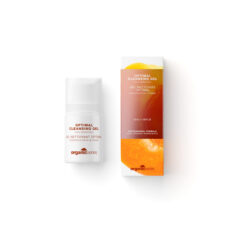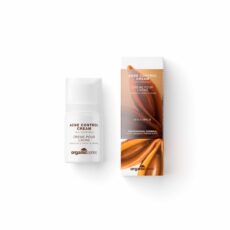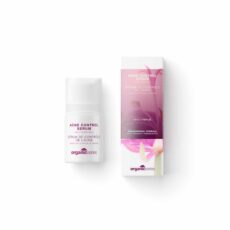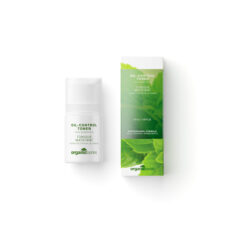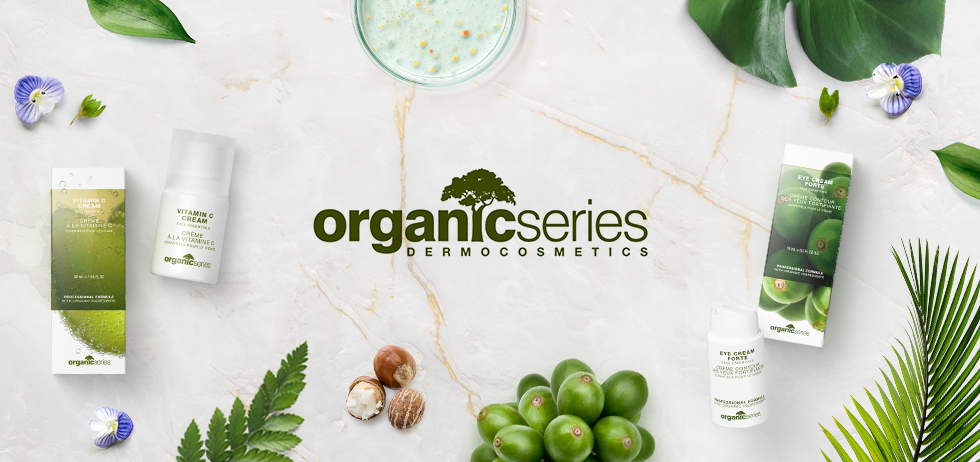Acne in Pregnancy – 10 Helpful Facts for Clearer Skin
Acne in pregnancy: Embarking on the beautiful journey of pregnancy brings about numerous changes in a woman’s body, and for some, this includes the challenge of dealing with acne. While it’s common for skin conditions to fluctuate during pregnancy, understanding the specifics of acne in this period can help you manage and alleviate these concerns. In this comprehensive guide, we’ll explore 10 helpful facts about acne in pregnancy, providing valuable insights and solutions for maintaining clear and healthy skin.
-
Hormonal Fluctuations and Acne in Pregnancy: Acne during pregnancy is often attributed to hormonal fluctuations, primarily an increase in androgen hormones. These hormonal changes stimulate the sebaceous glands in the skin, leading to an overproduction of oil. As a result, pores may become clogged, and acne lesions, including blackheads, whiteheads, and pimples, can develop.
Acne in pregnancy: Understanding the role of hormones in acne during pregnancy is crucial for managing expectations. While some women may experience a surge in acne, others may notice an improvement in their skin. The degree of hormonal influence varies, and factors such as genetics and pre-existing skin conditions contribute to individual experiences.
-
The Impact of Skincare Products: Pregnancy often prompts women to reevaluate their skincare routine, and choosing the right products becomes crucial. Opt for gentle, pregnancy-safe skincare products that do not contain harmful ingredients such as retinoids or salicylic acid, which may be absorbed into the bloodstream and potentially affect the developing baby. Instead, focus on mild cleansers, non-comedogenic moisturisers, and sunscreen with at least SPF 30 to protect your skin.
Acne in pregnancy: Incorporating a consistent and gentle skincare routine can help manage acne in pregnancy. Consider products with natural ingredients like chamomile or aloe vera, known for their soothing properties. Always consult with your healthcare provider or a dermatologist before introducing new skincare products during pregnancy to ensure they align with your unique needs.
-
Nutrition and Hydration: The relationship between diet and acne is an area of ongoing research, and during pregnancy, maintaining a healthy, balanced diet is essential for overall well-being, including skin health. Incorporate foods rich in antioxidants, such as fruits and vegetables, to support your skin’s natural defences against inflammation. Staying hydrated is equally crucial, as water helps flush out toxins and keeps your skin moisturised from within.
Acne in pregnancy: While some anecdotal evidence suggests a connection between certain foods and acne, individual responses may vary. Pay attention to how your body reacts to different foods and consider consulting a nutritionist for personalized advice. Striking a balance between nourishing your body and addressing acne concerns is key during this transformative period.
-
Safe Treatment Options: When dealing with acne in pregnancy, it’s essential to opt for safe and effective treatment options. Avoid over-the-counter products containing ingredients like benzoyl peroxide or salicylic acid, as their safety during pregnancy is not well-established. Instead, consider topical treatments with azelaic acid, a pregnancy-safe ingredient known for its acne-fighting properties. However, always consult with your healthcare provider before incorporating any new treatment into your routine.
Acne in pregnancy: In some cases, a healthcare provider may recommend oral antibiotics or other prescription medications for severe acne during pregnancy. It’s crucial to have an open and transparent conversation with your healthcare provider to determine the most suitable and safe treatment plan for your specific situation.
-
Gentle Cleansing Practices: Establishing a gentle cleansing routine is paramount when managing acne in pregnancy. Use a mild, fragrance-free cleanser to wash your face twice a day, avoiding harsh scrubbing or abrasive products that can irritate the skin. Pat your face dry with a soft towel and refrain from using hot water, as it can strip the skin of essential oils, leading to increased oil production.
Acne in pregnancy: Incorporating a gentle cleansing routine not only helps manage existing acne but also promotes overall skin health. Remember to be patient, as results may take time. Abrupt changes or aggressive cleaning practices can exacerbate skin issues, so adopting a gradual and gentle approach is key to maintaining a healthy complexion during pregnancy.
-
Stress Management Techniques: Pregnancy can be a stressful time, and managing stress is crucial for both your well-being and skin health. Stress can exacerbate hormonal fluctuations, potentially worsening acne. Explore stress management techniques such as meditation, deep breathing exercises, or prenatal yoga to promote relaxation and hormonal balance.
Acne in pregnancy: Engaging in activities you enjoy and taking time for self-care can also contribute to stress reduction. Adequate sleep is another vital factor, as a well-rested body is better equipped to handle stress. Prioritize self-care to create a positive and calming environment, supporting both your mental and physical health during this transformative period.
-
Sun Protection: Sun protection is a crucial aspect of managing acne in pregnancy, as some skin changes, including pigmentation and sensitivity, may occur. Choose a pregnancy-safe sunscreen with broad-spectrum protection to shield your skin from harmful UV rays. Sunscreen helps prevent pigmentation changes and reduces the risk of post-inflammatory hyperpigmentation, which can occur as a result of acne lesions.
Acne in pregnancy: Opt for a sunscreen with physical blockers like zinc oxide or titanium dioxide, as these are considered safe during pregnancy. Apply sunscreen generously and reapply throughout the day, especially if you spend extended periods in the sun. Protecting your skin from harmful UV rays not only supports acne management but also contributes to maintaining an even and healthy complexion.
-
Consultation with Healthcare Provider: When experiencing acne during pregnancy, consulting with your healthcare provider is a proactive step towards effective management. Your healthcare provider can assess the severity of your acne, rule out any underlying issues, and provide tailored advice based on your specific circumstances. They may collaborate with a dermatologist to create a comprehensive treatment plan that considers both the health of the mother and the developing baby.
Acne in pregnancy: Transparent communication with your healthcare provider is crucial for addressing any concerns or questions you may have. They can guide you on safe and effective skincare practices, recommend appropriate treatments, and monitor your skin’s response throughout your pregnancy. Regular check-ins ensure that any adjustments to your skincare or treatment plan can be made promptly.
-
Postpartum Skin Changes: Understanding that acne in pregnancy may persist postpartum is essential for managing expectations. Hormonal fluctuations continue during the postpartum period, and some women may experience changes in their skin, including acne flare-ups. Continuing with a gentle skincare routine and consulting with your healthcare provider for postpartum acne management ensures a seamless transition into the next phase of your skincare journey.
Acne in pregnancy: Postpartum skincare may involve adjusting your routine based on new considerations, such as breastfeeding. As always, consult with your healthcare provider before introducing any new products or treatments during the postpartum period. With the right approach, you can navigate postpartum skin changes with confidence and maintain healthy, glowing skin.
-
Patience and Self-Kindness: Dealing with acne in pregnancy requires patience and self-kindness. Understand that hormonal fluctuations and skin changes are natural parts of this transformative journey. Be patient with yourself and your skin as you explore different skincare practices and treatments. It’s essential to manage expectations and recognize that achieving clear skin may take time. Acne in pregnancy: Embrace a mindset of self-kindness, appreciating the incredible journey your body is undergoing. Pregnancy is a unique and beautiful experience, and while acne may be challenging, it is a temporary aspect. Engage in positive affirmations and focus on the aspects of your well-being that bring joy and fulfillment. By cultivating a mindset of patience and self-kindness, you contribute to both your mental health and the health of your skin during this special time.
Conclusion
Acne in pregnancy is a common concern, but armed with knowledge and a proactive approach, you can effectively manage and navigate this aspect of your prenatal experience. Each of the 10 facts discussed provides valuable insights and practical tips for promoting clear and healthy skin during pregnancy. Remember to consult with your healthcare provider, maintain a gentle skincare routine, and approach this period with patience and self-kindness. Embracing these guidelines will not only support your skin health but also contribute to a positive and fulfilling pregnancy journey.
Expert recommendation
Organic Series Serum for Acne in Pregnancy
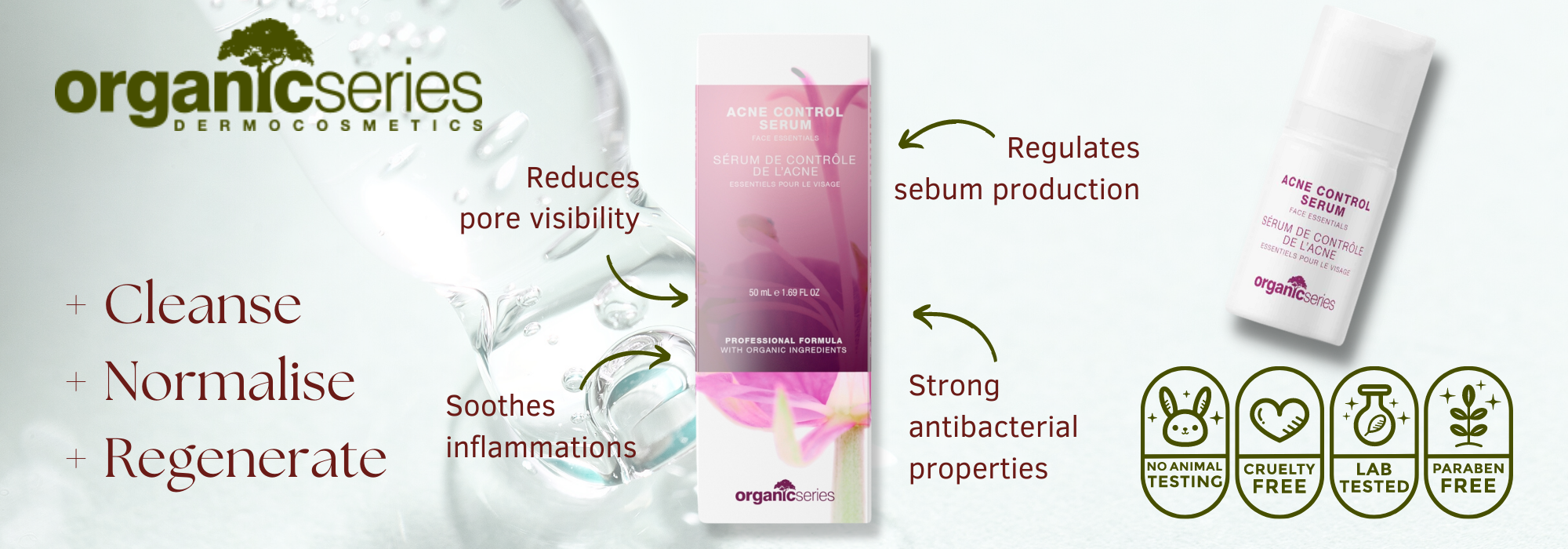
Benefits
- Intensive antibacterial properties.
- Regulates sebum production.
- Reduces pores visibility.
- Soothes inflammatory lumps.
- Leaves skin looking radiant, smooth, regenerated and perfectly moisturised.
- Alleviates redness, irritation and inflammation.
How to use
After cleansing and toning the skin, apply one dose of the organic acne serum to the face and neck. Massage gently in circular motions until completely absorbed. Use regularly with Organic Series Acne Control Cream.Active ingredients
- Glycerine – moisturises
- MG – 60 Corn Syrup – moisturises strongly, improves firmness and flexibility, soothes irritation.
- Trehalose – strongly moisturises, protects the skin from harmful external factors.
- Canadian Willowherb – normalises the sebaceous glands by inhibiting 5-α-reductase enzyme and Propionibacterium acnes activity. Has anti-inflammatory, antioxidant, soothing and alleviating effects.
- Green Tea Extract – shows antiradical, anti-inflammatory, photoprotective, anti-aging effects, reduces the formation of erythema.
- Sodium PCA – the sodium salt of pyroglutamic acid – moisturises, reduces transepidermal water loss TEWL. Occurs in the skin as a component of natural moisturiser.
- Tazman Pepper – has an anti-inflammatory effect, reduces swelling, soothes, relieves itching and burning. Regenerates, has anti-allergic, antibacterial effects, neutralizes free radicals, strengthens blood vessels.
- Oliglycan – prevents the formation of acne, regulates the sebaceous glands and the amount of sebum secreted. Remineralises the skin, shows antibacterial and disinfectant effects. Anti-inflammatory, neutralises free radicals, regenerates, moisturises, firms.
- Copper PCA – copper pyroglutamate – stimulates collagen synthesis, regenerates. Prevents scars, has slightly exfoliating properties, moisturises, smoothens, firms.
- Zinc PCA – has anti-aging, antibacterial and anti-inflammatory effects. Regulates the amount of sebum, soothes acne conditions.
Ingredients
Aqua, Lavendula Angustifolia Flower Water, Rosmarinus Officinalis Leaf Water, Rosa Damascena Flower Water, Glycerin, Maltooligosyl Glucoside / Hydrogenated Starch Hydrolysate, Sodium Polyacrylate Starch, Trehalose, Epilobium Angustifolium Flower / Leaf / Stem Extract, Camellia Sinensis Leaf Extract, Sodium PCA, Tasmannia Lanceolata Fruit Extract, Tremella Fuciformis (Mushroom) Extract, Lentinus Edodes Extract, Copper PCA, Zinc PCA, Benzyl Alcohol, Dehydroacetic Acid, Tetrasodium Glutamate Diacetate.Hazards and Cautions
Store in a dry, dark and cool place. Keep out of reach of childrenMore inspiration
Follow Organic Series UK on instagram and facebookFrequently asked questions
Is face serum good for acne? Is serum good for acne? Do serums help with acne? – A serum can be very helpful i fighting acne – it’s best to choose a professional organic acne serum at Organic Series which has scientifically proven results and very valuable ingredients! What serum for acne? What serum to use for acne scars? What serums are good for acne? What serum should I use for acne? What serum to use for acne? – When looking for a serum for acne always look for high content of active ingredients and products with scientifically proven results. This is why it’s always the best idea to use Organic Series professional dermocosmetics – organic, vegan and high performance. Our Organic Acne Serum will help you fight acne and restore a smooth and glowing look.Acne in Pregnancy By Organic Series
-
-
-
Organic Acne Cream | Acne Control Cream By Organic Series | 15ml, 50ml, 200ml
From £ 12.00Rated 4.75 out of 504 reviews -
Organic Acne Serum | Acne Control Serum By Organic Series | 15ml, 50ml, 200ml
From £ 12.00Rated 4.75 out of 504 reviews -
Toner for Oily Skin | Oil-Control Toner By Organic Series | 50ml, 200ml
From £ 24.00Rated 5.00 out of 501 review
Maria
All Author Posts

